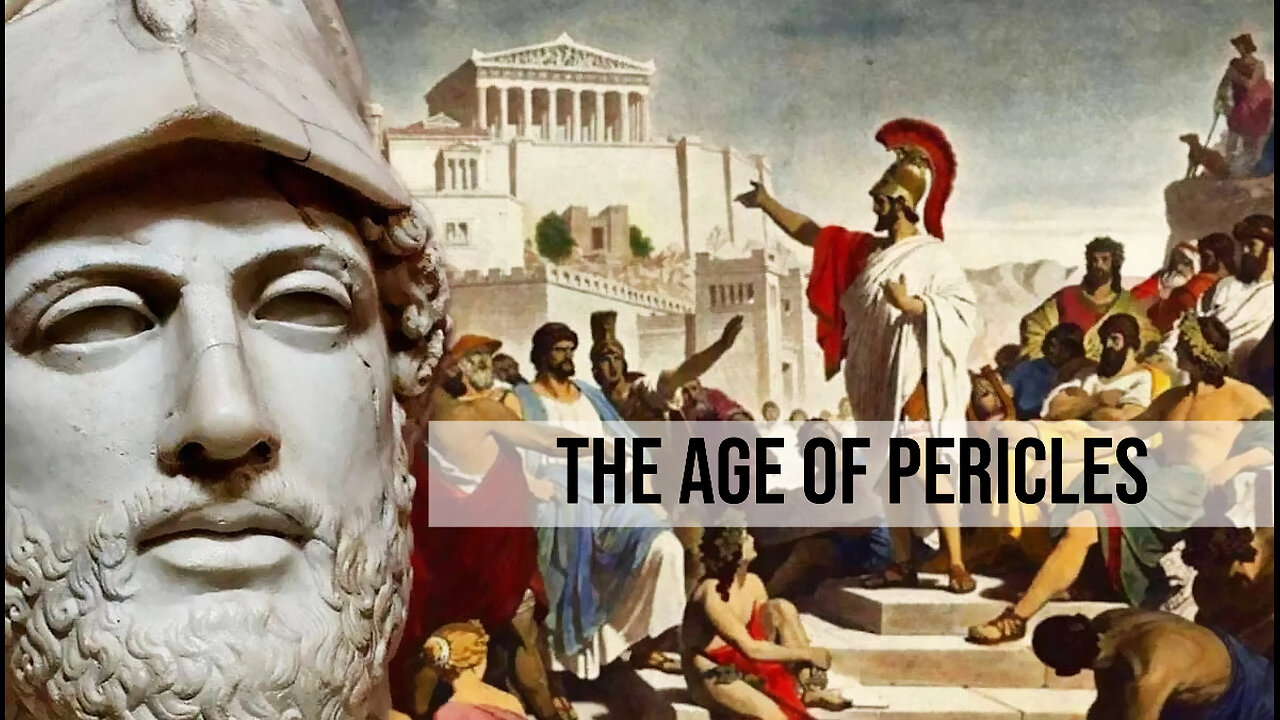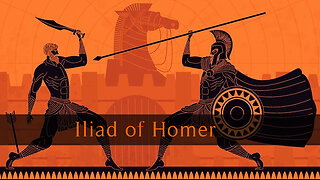Premium Only Content

The Age of Pericles | Marriage in Pericles’s Athens (Lecture 9)
Lecture 9: One of the most dramatic legal cases to survive from the classical age is the speech Against Neaera, in which the speaker, Theomnestus, claimed that Neaera deserved to be prosecuted, convicted, and sold into slavery because she was not the legal wife of Stephanus but, in fact, a former slave and prostitute. The case illustrates the enormous anxiety that surrounded marriage in Pericles’s day. Wives had to be from guaranteed citizen families; otherwise, the children of these marriages were regarded as illegitimate. In this lecture, we will contrast the case of Neaera with the anonymous wife who figures prominently in the handbook written by Xenophon, On Household Management. In this text, Ischomachus makes it clear that a good wife should stay inside the home managing the servants and weaving. Being seen outside, even being spoken about, is regarded as a threat to the woman’s reputation. Marriage for love, therefore, is not a common practice. Marriage in Pericles’s Athens is a contractual arrangement between father-in-law and son-in-law. In fact, marriages were often contracted within the family, between cousins or uncles and nieces, in order to keep the family’s property intact.
Suggested Reading:
Freeman, K. The Murder of Herodes. Indianapolis: Hackett, 1991.
Jones, N. F. Ancient Greece: State and Society. Upper Saddle River, N.J.: Prentice Hall, 1996.
Lacey, W. K. The Family in Classical Greece. London: Thames and Hudson, 1968.
Winkler, J. J. The Constraints of Desire: The Anthropology of Sex and Gender in Ancient Greece. London: Routledge, 1990.
Lecture 10: https://rumble.com/v5eequj-the-age-of-pericles-family-and-property-lecture-10.html
-
 30:59
30:59
The Great Courses
8 days agoThe Iliad of Homer | The Homeric Question (Lecture 2)
95 -
 LIVE
LIVE
Alex Zedra
2 hours agoLIVE! VERDANSK!!!!!
763 watching -
 LIVE
LIVE
SpartakusLIVE
11 hours agoThe RETURN w/ StoneMountain64, Aculite, and StevieT
485 watching -
 LIVE
LIVE
SoundBoardLord
3 hours agoR.E.P.O. Thriller Thursday with Friends!! ROUND 2
380 watching -
 LIVE
LIVE
BrancoFXDC
46 minutes agoBack to VERDANSK We Go!
531 watching -
 LIVE
LIVE
Pepkilla
4 hours agoTime to Party Verdansk
205 watching -
 LIVE
LIVE
iCheapshot
2 hours ago $0.19 earnedWhere We Landing Boys! | Warzone Verdansk is Back Yeerrr
916 watching -
 LIVE
LIVE
Savanah Hernandez
4 hours agoIt’s Time To Start Asking Hard Questions: Where Are The Arrests?
15,243 watching -
 2:57:33
2:57:33
TimcastIRL
3 hours agoTrump Tariffs Spark Global PANIC, Countries BEG Trump, CAVE To His Demands | Timcast IRL
140K103 -
 1:37:16
1:37:16
Roseanne Barr
5 hours ago $14.79 earnedThe Man Who Saved America | The Roseanne Barr Podcast #93
43.1K35